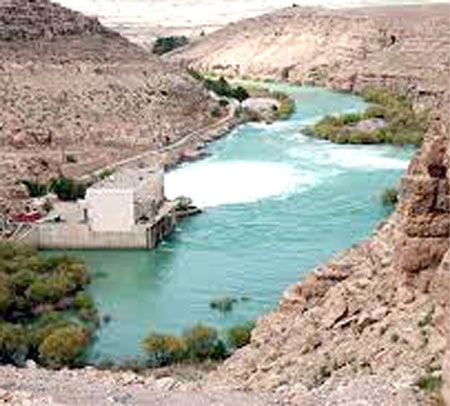Afghanistan and Iran reached an agreement over the Helmand water treaty, an official of the Ministry of Energy and Water said.
The Ministry of Energy and Water said that in the current year, the water of Helmand River will be shared with Iran based on the Helmand Water treaty signed in 1973 between the two countries.
A senior official of the MoEW, Barakutullah Aryoubi, said that both sides agreed to erect mutual stations and facilities on the two sides of the Helmand River.
“The two sides called for the implementation of the treaty as the problem was within the area covered by the treaty,” he said.
Aryoubi also said that the MoEW is planning to resume construction of Kamal Kham dam to control the water of the Helmand River.
“The MoEW is seriously intending to construct the Kamal Khan Dam to address the problems of the people,” he said.
“The Kamal Khan Dam like many others, can play an important role in water management if the necessary facilities are installed for it,” said Hameedullah Yalani, former head of the Afghanistan Water Supply.
The Afghanistan Chamber of Agriculture and Livestock (ACAL) said that a lot of land across the country is not used for agriculture purposes due to the lack of good water management.
“The water dams should be considered so the Afghans can take advantage of it and the problem of wheat can be solved,” said Mirwais Hajizada, a member of the ACAL.
According to the 1973 treaty, Afghanistan is committed to sharing the water from Helmand River with Iran at the rate of 26 cubic meters of water per second, or 850 million cubic meters per annum.
Meanwhile, Attaullah Afghan, the former head of the Helmand provincial council, said the level of water has lowered in Helmand River, and said that the river’s water flow into Iran should not be allowed.
“Iran’s request for water is not accepted to the Helmand people because they themselves face a water shortage,” he said.
“The Iranians want Afghanistan’s water to not be managed properly,” said Hamid Mujadadi, a university lecturer.
Tariq Farhadi, a political analyst, said Mousavi’s remarks are not valid because Iran has not recognized the Islamic Emirate and they cannot reaffirm such treaties.
“Remarks of the Iranian official are completely baseless. When has the Taliban signed it? When they were not in power? So that signature is not valid. If they signed after coming to power, Iran has not recognized their government,” he said.
Ghani had said he will give water to the neighboring countries in exchange for oil, but will not give it away for free.—Tolonews










